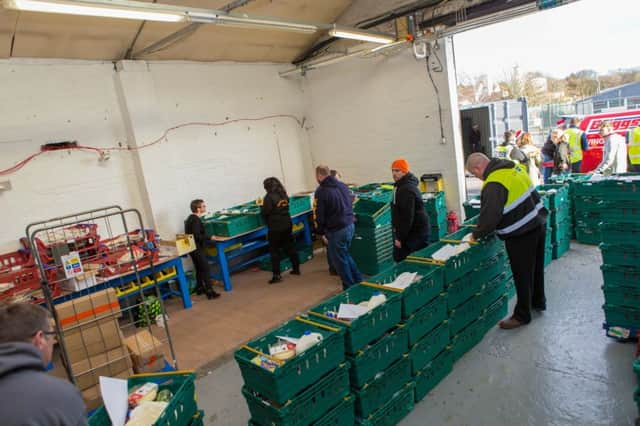Universal credit costing Fife economy £153m a year


In a report to Fife Council’s Scrutiny committee, it was revealed that the changes, including a switch to Universal Credit, is costing Fife £153m every year, as well as households receiving benefits being down.
The costs included involve mitigation that Fife Council needed to do, including hiring new staff, to help cope with the changes.
You may also be interested in:
Advertisement
Hide AdAdvertisement
Hide AdThe research originally carried out by Sheffield Hallam University is based on the DWP’s own impact assessments for each welfare change. It shows the reduction in overall income for those affected by the reforms.
Rent arrears to Fife Council have increase more than £500,000 in the last six months due to tenants struggling to pay. Around 50,000 households are worse off.
A case study showed that a single mother with two children met with an officer to help budget her finances and it was discovered she was minus £200 each month needed to make ends meet. She ended up with £2400 in rent arrears just so she could feed her children. She now depends on food banks and charity support and has been served an eviction notice.
Councillor Colin Davidson called the impact on Fife a “car crash” saying: “The report highlights concerns going forward. We need to get clarity on how we’re going to deal with rent arrears because they were anticipated as being at around £1m, but they‘re already up at £1.5m and I can’t see it getting any less.”
Advertisement
Hide AdAdvertisement
Hide AdCouncillor Ian Cameron said: “This report reads like a charge sheet, I find it incredible. Do we know how much these changes have cost to implement? Is there an overall benefit to actually reforming the system or are we paying out more now than before?”
Les Robertson, head of revenue and commercial services, said: “It would be almost impossible to calculate these costs to the council because it has so many aspects. We’ve had to increase resources, such as hiring more officers, to deal with the growing rent arrears, but there are so many different strands, it would be difficult to pick up the overall cost.”
Councillor John Beare said: “It’s hard to know where to start with something of this scale. It’s not unrealistic to say we’re in a crisis.
“When it comes to people being sanctioned, what support are we offering? What are we doing to support our most vulnerable?”
Advertisement
Hide AdAdvertisement
Hide AdHe added: “What about our third party organisations? Are they able to cope with the increased pressure?”
Mr Robertson told the committee: “We have a leaflet that we give out to every person if they have been sanctioned. There number of sanctions being given out is falling. It’s dropped from 6% in December 2017 to 1.6% in November 2018.
”Our third party organisations, they are busy and pushed. There are waiting times for every advice service – money advice, debt advice – you aren’t able to just go in and get seen within an hour, put it that way.”